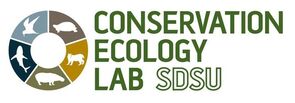Bradley MacDonald
Background I grew up in Boston. Perhaps needless to say, I stuck around there for a long time, as northeasterners tend to do. When I reached an age of sufficient (but still woefully below average) maturity and perspective to realize there was a world outside the immediate vicinity of Fenway Park, I started to become interested in environmental issues. Specifically, I was drawn to instances in which natural environments abutted human activities and development.
It was during my undergraduate years at Boston College that the concept of urban ecology captured my attention. I was intrigued by the less restrictive view that many natural environments and urban areas can exist as sustainable, cooperative ecological networks. As my advisor Pete Auger told me at the time, ‘There are a lot of people out there and they’re all going to need places to live. The question is whether or not we can meet those requirements in a way that is responsible and respectful to the world that supports our needs.’ I’ve been living by those words ever since.
When I graduated from Boston College, I decided to try my hand at field opportunities elsewhere, ‘wicked hahd’ though it might be to leave. Since that point in time, I have been lucky enough to work across government, NGO, and university settings in St. Croix of the U.S. Virgin Islands, the northeastern coast of Uruguay, and the rocky intertidal regions of the Oregon coast; visits to diverse environments in New Zealand and the Philippines have also largely shaped my understanding of how various sociological and cultural factors determine the course of anthropogenic activities that affect natural environments.
Experience
B.S. Biology & Environmental Studies, Boston College, 2006
Boston College Diamondback Terrapin Headstarting Program, 2004-2006
Marine Resources Center Intern, Marine Biological Laboratory, Woods Hole MA, 2006
Hawksbill Sea Turtle Research Assistant, National Park Service, St. Croix USVI, 2007
Green Sea Turtle Research Assistant, Karumbé, Uruguay, 2008
Intertidal Research Assistant, PISCO, Oregon State University, 2008
Research Interests
My thesis research focuses on the habitat use and local movements of Eastern Pacific green sea turtles (Chelonia mydas) within San Diego Bay, CA, as part of the NOAA Green Turtle Project.
Characterizing green sea turtle movement patterns in San Diego Bay will be accomplished by tracking turtles that have been outfitted with small, ultrasonic transmitters (tags, hereafter). Tagged turtles will be tracked in two ways: actively and passively. Active tracking will entail research boats using directional hydrophones to follow tagged individuals for short periods of time (0-24 hours), in order to determine home ranges and to characterize any diel, fine scale movement patterns exhibited by tagged turtles. Passive monitoring techniques, whereby underwater arrays of submersible ultrasonic receivers detect the presence of a tagged turtle within their scanning range, will provide long term data on potential seasonal or annual trends in habitat use.
It is my hope that the successful quantification of green turtle movement patterns within San Diego Bay will allow for the implementation of strategies to better minimize the impact of shipping, construction, recreational, and channel dredging activities on resident green turtles and the ecological web of which they are an integral part.
It was during my undergraduate years at Boston College that the concept of urban ecology captured my attention. I was intrigued by the less restrictive view that many natural environments and urban areas can exist as sustainable, cooperative ecological networks. As my advisor Pete Auger told me at the time, ‘There are a lot of people out there and they’re all going to need places to live. The question is whether or not we can meet those requirements in a way that is responsible and respectful to the world that supports our needs.’ I’ve been living by those words ever since.
When I graduated from Boston College, I decided to try my hand at field opportunities elsewhere, ‘wicked hahd’ though it might be to leave. Since that point in time, I have been lucky enough to work across government, NGO, and university settings in St. Croix of the U.S. Virgin Islands, the northeastern coast of Uruguay, and the rocky intertidal regions of the Oregon coast; visits to diverse environments in New Zealand and the Philippines have also largely shaped my understanding of how various sociological and cultural factors determine the course of anthropogenic activities that affect natural environments.
Experience
B.S. Biology & Environmental Studies, Boston College, 2006
Boston College Diamondback Terrapin Headstarting Program, 2004-2006
Marine Resources Center Intern, Marine Biological Laboratory, Woods Hole MA, 2006
Hawksbill Sea Turtle Research Assistant, National Park Service, St. Croix USVI, 2007
Green Sea Turtle Research Assistant, Karumbé, Uruguay, 2008
Intertidal Research Assistant, PISCO, Oregon State University, 2008
Research Interests
My thesis research focuses on the habitat use and local movements of Eastern Pacific green sea turtles (Chelonia mydas) within San Diego Bay, CA, as part of the NOAA Green Turtle Project.
Characterizing green sea turtle movement patterns in San Diego Bay will be accomplished by tracking turtles that have been outfitted with small, ultrasonic transmitters (tags, hereafter). Tagged turtles will be tracked in two ways: actively and passively. Active tracking will entail research boats using directional hydrophones to follow tagged individuals for short periods of time (0-24 hours), in order to determine home ranges and to characterize any diel, fine scale movement patterns exhibited by tagged turtles. Passive monitoring techniques, whereby underwater arrays of submersible ultrasonic receivers detect the presence of a tagged turtle within their scanning range, will provide long term data on potential seasonal or annual trends in habitat use.
It is my hope that the successful quantification of green turtle movement patterns within San Diego Bay will allow for the implementation of strategies to better minimize the impact of shipping, construction, recreational, and channel dredging activities on resident green turtles and the ecological web of which they are an integral part.

